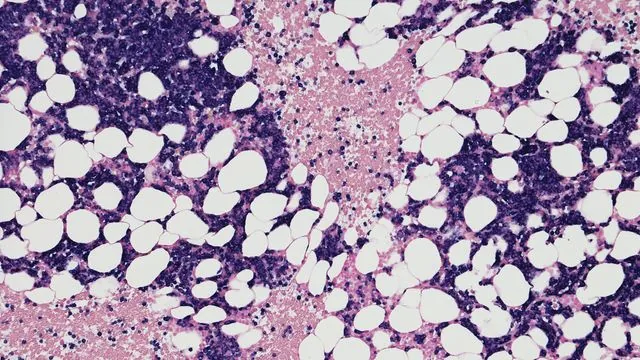
Revolutionary RNA-Based Liquid Biopsy Detects Early Colon Cancer with Stunning 95% Accuracy
2025-07-09
Author: Mei
A groundbreaking new liquid biopsy technique developed by researchers at the University of Chicago is turning the tables on early-stage colorectal cancer detection, boasting an impressive 95% accuracy rate. This innovative approach shifts the focus from DNA to RNA, aiming to catch the disease before it escalates.
Why RNA over DNA?
Current liquid biopsy tests primarily rely on circulating cell-free DNA (cfDNA) to identify cancer markers. However, in the initial stages of cancer, dying tumor cells release less cfDNA, making standard tests significantly less effective—often below 50% accuracy. Dr. Chuan He emphasizes the challenge: "You just don't have enough tumor DNA released into the blood at early stages." Enter RNA, the unsung hero that reflects real-time genetic activity within the body.
Unveiling the Power of RNA Modifications
This new study has shown that examining RNA modifications—chemical alterations to RNA molecules—can provide a stable and reliable measure for detecting cancer. Unlike RNA levels, which can fluctuate wildly based on collection conditions, the proportion of modified RNA remains constant. This consistency allows for a more accurate analysis, making it crucial for early diagnosis.
Capturing Insights from Gut Microbes
A fascinating twist? The RNA test also picks up signals from microbial RNA linked to gut health. As tumors develop, nearby gut microbial populations rally, releasing unique RNA fragments into the bloodstream. By analyzing these microbial RNA modifications, researchers can further enhance early detection capabilities, with Dr. He noting, "When a tumor is growing, the microbiome undergoes significant changes in response to inflammation." This provides an additional layer of insight.
Testing Real People, Not Just Samples
In real-world applications, the research team analyzed blood samples from colorectal cancer patients and compared them with healthy individuals. Distinct RNA modification patterns emerged from cancerous samples, allowing for high sensitivity in distinguishing between healthy and diseased states.
The Future of Cancer Detection Looks Bright
Unlike existing commercial tests that often fall short in identifying early-stage diseases, this novel RNA modification-based test is a game-changer. Its ability to maintain almost perfect accuracy across all cancer stages marks a significant leap forward in cancer diagnostics.
This landmark study represents the first time RNA modifications have been evaluated as potential biomarkers in liquid biopsy contexts, demonstrating the enormous diagnostic possibilities of combining both host and microbial genetic activity.


 Brasil (PT)
Brasil (PT)
 Canada (EN)
Canada (EN)
 Chile (ES)
Chile (ES)
 Česko (CS)
Česko (CS)
 대한민국 (KO)
대한민국 (KO)
 España (ES)
España (ES)
 France (FR)
France (FR)
 Hong Kong (EN)
Hong Kong (EN)
 Italia (IT)
Italia (IT)
 日本 (JA)
日本 (JA)
 Magyarország (HU)
Magyarország (HU)
 Norge (NO)
Norge (NO)
 Polska (PL)
Polska (PL)
 Schweiz (DE)
Schweiz (DE)
 Singapore (EN)
Singapore (EN)
 Sverige (SV)
Sverige (SV)
 Suomi (FI)
Suomi (FI)
 Türkiye (TR)
Türkiye (TR)
 الإمارات العربية المتحدة (AR)
الإمارات العربية المتحدة (AR)